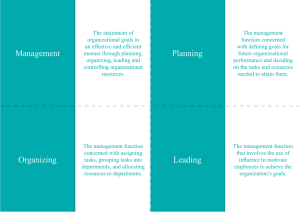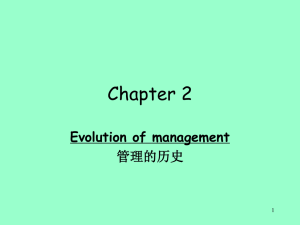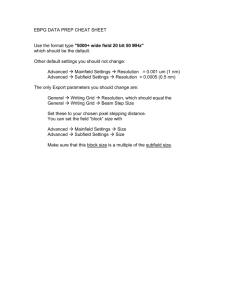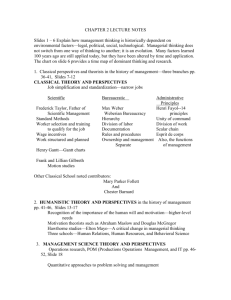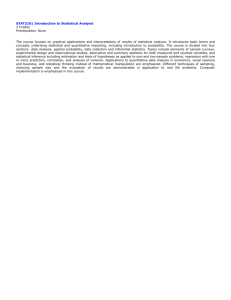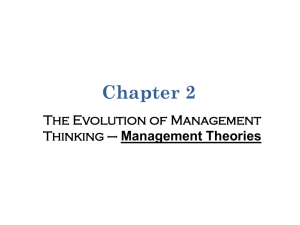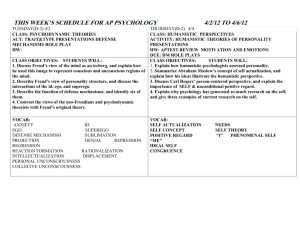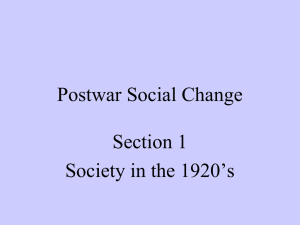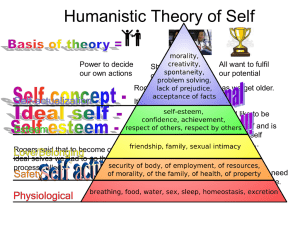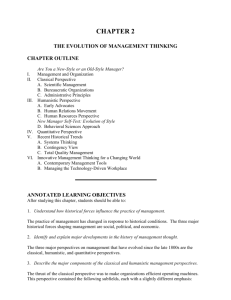administrative principles A subfield of the classical management
advertisement
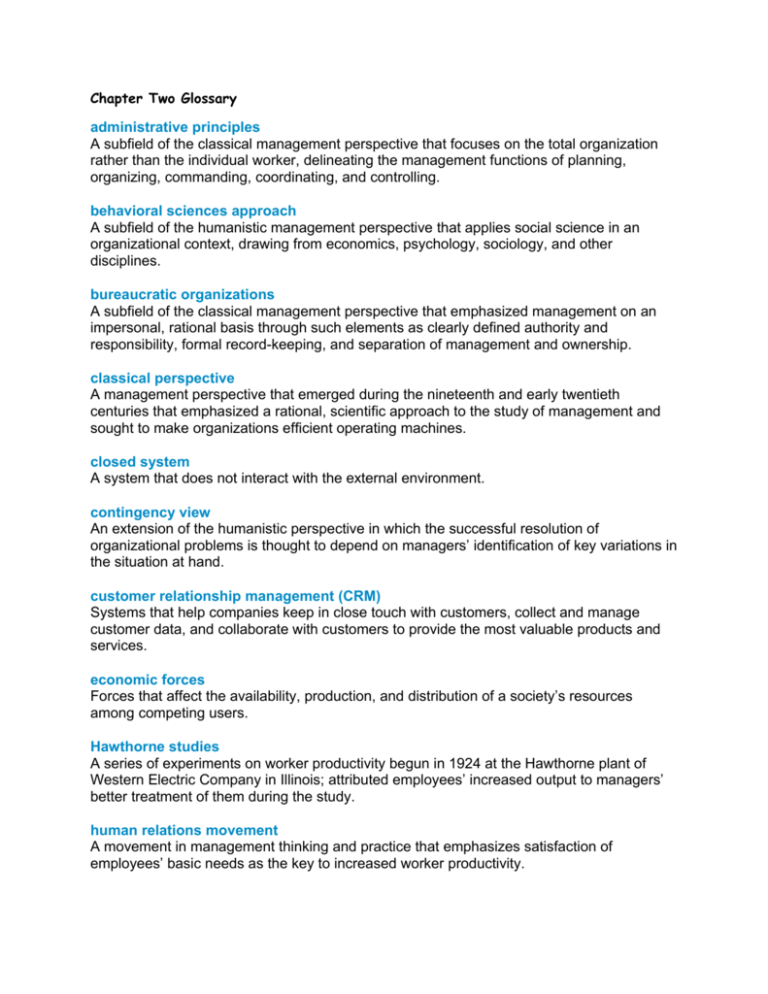
Chapter Two Glossary administrative principles A subfield of the classical management perspective that focuses on the total organization rather than the individual worker, delineating the management functions of planning, organizing, commanding, coordinating, and controlling. behavioral sciences approach A subfield of the humanistic management perspective that applies social science in an organizational context, drawing from economics, psychology, sociology, and other disciplines. bureaucratic organizations A subfield of the classical management perspective that emphasized management on an impersonal, rational basis through such elements as clearly defined authority and responsibility, formal record-keeping, and separation of management and ownership. classical perspective A management perspective that emerged during the nineteenth and early twentieth centuries that emphasized a rational, scientific approach to the study of management and sought to make organizations efficient operating machines. closed system A system that does not interact with the external environment. contingency view An extension of the humanistic perspective in which the successful resolution of organizational problems is thought to depend on managers’ identification of key variations in the situation at hand. customer relationship management (CRM) Systems that help companies keep in close touch with customers, collect and manage customer data, and collaborate with customers to provide the most valuable products and services. economic forces Forces that affect the availability, production, and distribution of a society’s resources among competing users. Hawthorne studies A series of experiments on worker productivity begun in 1924 at the Hawthorne plant of Western Electric Company in Illinois; attributed employees’ increased output to managers’ better treatment of them during the study. human relations movement A movement in management thinking and practice that emphasizes satisfaction of employees’ basic needs as the key to increased worker productivity. human resources perspective A management perspective that suggests jobs should be designed to meet higher-level needs by allowing workers to use their full potential. humanistic perspective A management perspective that emerged near the late nineteenth century and emphasized understanding human behavior, needs, and attitudes in the workplace. learning organization An organization in which everyone is engaged in identifying and solving problems, enabling the organization to continuously experiment, improve, and increase its capability. management science perspective A management perspective that emerged after World War II and applied mathematics, statistics, and other quantitative techniques to managerial problems. open system A system that interacts with the external environment. outsourcing Contracting out selected functions or activities of an organization to other organizations that can do the work more cost efficiently. political forces The influence of political and legal institutions on people and organizations. scientific management A subfield of the classical management perspective that emphasized scientifically determined changes in management practices as the solution to improving labor productivity. social forces The aspects of a culture that guide and influence relationships among people—their values, needs, and standards of behavior. subsystems Parts of a system that depend on one another for their functioning. supply chain management Managing the sequence of suppliers and purchasers, covering all stages of processing from obtaining raw materials to distributing finished goods to final customers. synergy The concept that the whole is greater than the sum of its parts. system A set of interrelated parts that function as a whole to achieve a common purpose. systemic thinking Seeing both the distinct elements of a situation and the complex and changing interaction among those elements. systems theory An extension of the humanistic perspective that describes organizations as open systems characterized by entropy, synergy, and subsystem interdependence. total quality management (TQM) A concept that focuses on managing the total organization to deliver quality to customers. Four significant elements of TQM are employee involvement, focus on the customer, benchmarking, and continuous improvement.
